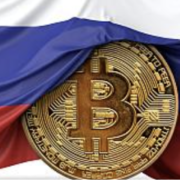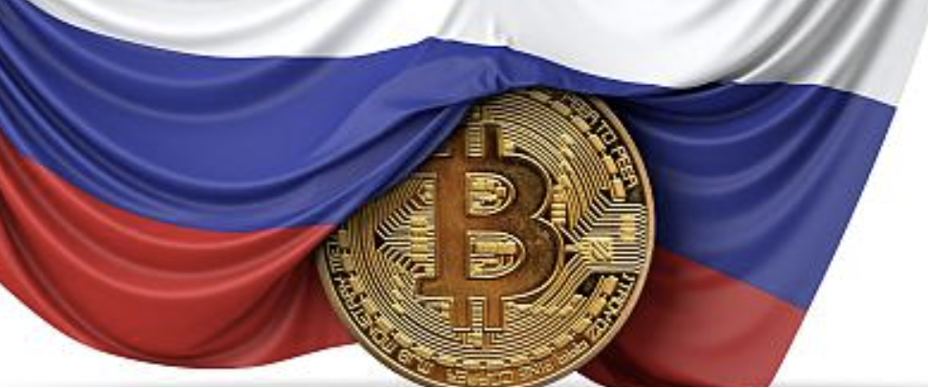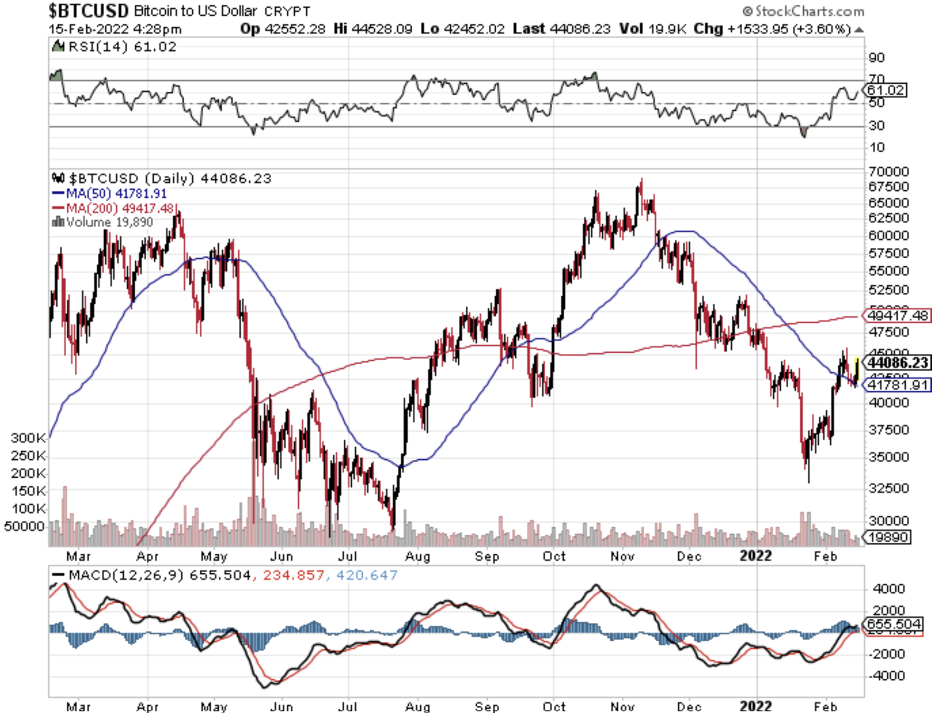Russia Power-Ups Domestic Crypto Industry
Russian war? Yawn.
Is it a ploy to raise energy prices? Perhaps.
They have been in the news lately for all the wrong reasons and a diminished superpower invading Ukraine and Europe would have been financially devastating for a country with an economy the same size as the state of Texas.
The more important news for us crypto fanatics is the bombshell that was dropped on February 8th – The Russian government approved the concept of regulating the cryptocurrency market in Russia.
According to the plan, all transactions with digital money will have to go through banks, and already existing wallets will have to be deanonymized.
Russian leader Vladimir Putin forced the State and Central Bank to come together to propose numerous measures that should bring digital currency transactions out of the gray zone, as well as the timing of the implementation of these plans.
Judging by the approved concept, in the future, all cryptocurrency transactions will go through the banking infrastructure.
In order to open a wallet, and then buy or sell cryptocurrency, a person will need to contact the bank and go prove identification there.
The government believes that a complete ban on the crypto industry (as originally proposed by the Central Bank) or the absence of its regulation will lead to an increase in the share of the shadow economy, an increase in fraud cases.
The plan is for Russians, who have opened more than 12 million cryptocurrency wallets, on which about 2 trillion rubles sit to be an official part of the financial system.
It is estimated that almost 12% of the Russian population (about 17 million people) owns cryptocurrency.
What will government regulation lead to?
The cryptocurrency market in Russia is growing, so it needs legalization.
Market participants will be more fluid if crypto isn’t illegal which means that investments will flow into the industry.
This includes large institutional money from the traditional financial market, which is accustomed to working in conditions of strict regulation and licensing by the Central Bank.
The structure of the market after the introduction of new rules may change.
“Not all of the big crypto exchanges will agree to work in the new conditions because of deanonymized aspects of it and the government oversight.
Now all the largest sites are not Russian, and this will change. This sets up nicely for a domestic exchange that will cater towards the Russian language and possess Russian characteristics.
The government understood that the ban would completely exclude the Russian economy from the emerging global digital space, with all the ensuing consequences.
The Russian authorities took heed from China’s experience with crypto, where they completely banned cryptocurrencies and mining and which could have devastating effects on their future economy and currency.
The Chinese have bet on the digital yuan, which they are now implementing at full steam, hoping that in the future it will become the world's reserve currency.
Quite laughable, but that’s what they think.
Because of this decision, miners and investors fled the country for Russia, Kazakhstan, and other crypto-friendly countries and regions.
What about mining?
There could be a separate bill that will be devoted to mining, which will define specific territories for the "mining" of digital currency (similar to gambling zones) and separate energy rules.
I believe that the legalization of mining will have a positive effect and encourage an emerging mining industry to grow inside of Russia.
The state will have the opportunity to optimize energy, for example, load idle power plants, giving the surplus of energy to miners.
Ultimately, Russia is setting into motion the rules to encourage a thriving crypto domestic industry and reduce the cost of electricity for the population.
Sure, this undermines the spirit of crypto being a decentralized good, but Russia’s totalitarian government simply won’t allow a free-flowing crypto environment without oversight.
I believe that proven crypto coins like Bitcoin and Ethereum will be given the green light by the Russian government, and this would never happen unless Russia gets its cut as well.
Russia, which did its best to kick out the US tech industry, is hesitant to repeat the same antics as the loss of revenue and high-paying jobs over the long haul came back to bite the government.
On a wider scale, this will fortify and legitimize crypto as a real global risk asset and in the short-term, price action should benefit and move higher from here.
Ironically, Bitcoin has stabilized in the $40,000s and could move higher in the next month or two.






